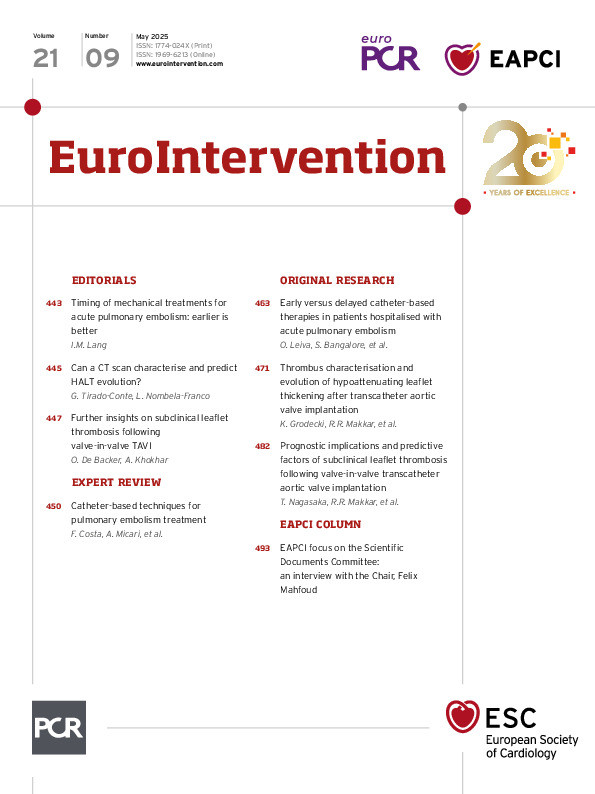Abstract
Background: Acute pulmonary embolism (PE) is a common cause of cardiovascular morbidity and mortality. Catheter-based therapies (CBT) are emerging technologies that provide reperfusion for patients with PE. However, the optimal timing of these interventions from initial presentation is unknown.
Aims: This study aimed to determine whether the timing of CBT affects outcomes among patients with acute PE managed with CBT.
Methods: This was a retrospective cohort study of patients with PE who underwent CBT and were included in the Nationwide Readmissions Database between January 2017 and December 2020. Patients who underwent early CBT (≤1 day from admission) were compared with those who underwent delayed CBT (>1 day). The primary outcome was death at 90 days, and secondary outcomes included 90-day readmissions. Propensity scores were estimated using logistic regression, and propensity score weighting (PSW) was utilised to compare outcomes between early and delayed CBT. Cox proportional hazards modelling was used to estimate the risk of primary and readmission outcomes.
Results: A total of 12,137 patients were included: 1,992 (16.4%) had high-risk PE, and 1,856 (15.3%) were treated with delayed CBT. After PSW, early CBT was associated with a lower risk of 90-day death in both intermediate-risk (hazard ratio [HR] 0.55, 95% confidence interval [CI]: 0.46-0.66) and high-risk (HR 0.89, 95% CI: 0.80-0.99) PE. Early CBT was associated with lower rates of all-cause readmission in patients with intermediate-risk PE (HR 0.86, 95% CI: 0.78-0.95) and in those with high-risk PE (HR 0.84, 95% CI: 0.69-1.05).
Conclusions: Among patients with intermediate- or high-risk PE, early CBT was associated with a lower risk of 90-day death and readmission. A further prospective study on the optimal timing for reperfusion using CBT is needed.
Sign up for free!
Join us for free and access thousands of articles from EuroIntervention, as well as presentations, videos, cases from PCRonline.com

